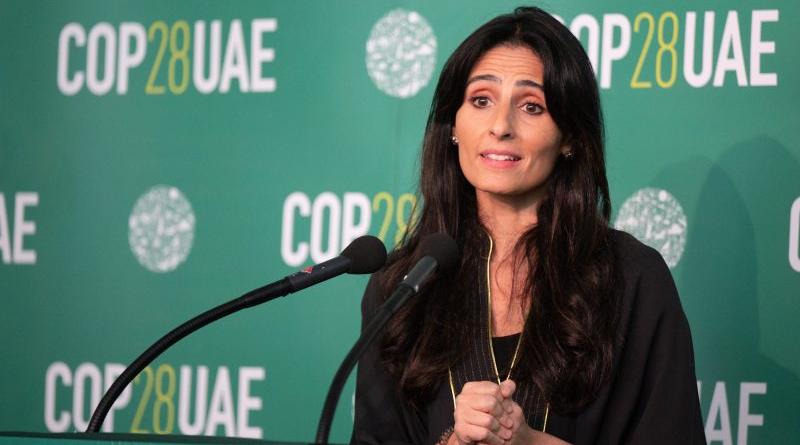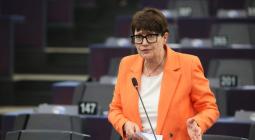The Global Stocktake: Charting a course to climate and nature recovery

st stocktake of efforts to curtail the climate crisis can provide a critical lever to engage all stakeholders in a just transition to a 1.5C, resilient and inclusive world.
But the GST will likely show that we are not on the right path. To course-correct, we need transformative collaboration between all the actors within our economies, including women, young people, Indigenous Peoples, businesses, investors, national and subnational governments, civil society and academia.
The global consensus to strive for net zero emissions by 2050 was reached over two years ago. 92% of global GDP and 89% of the world’s population are now represented by the net-zero targets that the bulk of national governments have adopted. These commitments provide the scaffolding for systems transformation, but governments cannot do it alone.
We need non-State actors to mobilise the means to implement emissions reductions, address the adaptation gap and avert, minimise and address loss and damage associated with the adverse effects of climate change. By raising both the ambition and integrity of commitments, non-State actors can set down the guardrails for these actions.
Non-State Leaders are assembled at the starting line
The key actors of our economies, the civil society groups, companies, cities, states and regions, can together form a groundswell for change, and they are taking up the challenge in their thousands. For example, 11,000 Race to Zero members have committed to halving their emissions by 2030. To support this, the 2030 Breakthroughs are driving the transformation of 28 sectors – from human settlements to transport, from water to land use.
Work to adapt to the now-unpreventable climate impacts by increasing resilience are key to ensuring that communities survive and thrive in the face of floods, droughts, cyclones and other impacts. The Sharm El-Sheikh Adaptation Agenda launched at COP27 has outlined 30 measurable adaptation goals to mobilise partners in delivering enhanced resilience for four billion people across water, ocean, human settlements, and infrastructure impact systems by 2030. Commitments made through the Race to Resilience so far aim to make three billion people in vulnerable urban, rural and coastal communities more resilient to climate risk by 2030.
As well as providing a view in the rear-view mirror of where we are against where we need to be, the GST is expected to act as a ‘satnav’, showing the fastest and most efficient routes to a 1.5C resilient world in 2050. In this way, the GST can mobilise the means for action – to raise public and private finance at scale, diffuse technology, and provide capacity building where needed most.
The stage is set for systems transformation
To support the shift, the economics are also tilting inexorably towards systems change, spiralling outwards from energy to transport, food, etc. For example, renewable electricity has passed a series of tipping points in recent years – accelerated by geopolitical tensions and the ensuing gas shortage.
Global power sector emissions are expected to fall for the first time this year, plus according to the IEA, for every dollar invested in fossil fuels, around $1.7 is now going into clean energy. The stage is set for other sectors to transform much faster, driving down emissions while stabilising economies with new jobs.
Climate mitigation and biodiversity loss are two sides of the same coin. To successfully transform our systems, there is an urgent need to put nature at the heart of the transition. Nature-based solutions cannot replace or delay other decarbonisation efforts, however, up to 30% of the mitigation necessary to achieve our 2030 emissions reduction goals can be provided by nature.
We must put nature at the heart of climate action to accelerate investment in solutions that deliver mitigation and adaptation while contributing to reversing biodiversity loss and enhancing livelihood opportunities for local communities.
Half of the world’s annual economic value generation depends on nature and its services. By encompassing nature and climate, the GST should help mobilise public and private finance where they are urgently needed – to respond to local resilience needs and contribute to recovering from loss and damage, and ultimately deliver a nature positive, net zero world.
Empowering an inclusive transition
As UN climate change high-level champions, we are working to foster a cooperative race between national governments and non-state actors to deliver economic transformation, a just transition, and achieve Sustainable Development Goals.
The transparency brought by the GST can be a key lever to ratchet up the support from the international community to address the climate crisis, which is both a symptom and a cause of inequality. Those marginalised by inequality often bear the brunt of its consequences, from vulnerable communities enduring extreme weather events, such as the devastating droughts in the Horn of Africa, to Indigenous Peoples losing their ancestral lands to expanding industries. We can also expect the conclusion of the GST to highlight the intertwined challenges of social justice, economic empowerment, poverty eradication and environmental stewardship. With this knowledge, we can forge a powerful alliance capable of delivering accurate and practical solutions to the climate crisis.
Amidst the unprecedented challenge to transform our core systems lies an extraordinary opportunity—the power to reshape our world through an inclusive transition. By centring equity at the core of our response to the climate crisis, we can ignite a transformative movement that engages communities, empowers individuals, and paves the way for a sustainable future. When we uplift the voices of those most impacted, we unlock their incredible potential as change agents.
At the Bonn UN Climate Summit this week, we invite non-state actors, from corporates to civil society, to investors and cities, to support the GST process, to share their progress, help to identify key gaps and challenges and co-create actionable solutions. Through its far-reaching, holistic scope, the GST can help to turn the challenges of the transition from a paralysing ultimatum into a galvanising force for change.
cover photo:Razan Al Mubarak, UN Climate Change High-Level Champion for the COP28 Presedency, delivers a speech during the Climate Change Conference in Bonn, Germany, 08 June 2023. [EPA-EFE/BENJAMIN WESTHOFF]






